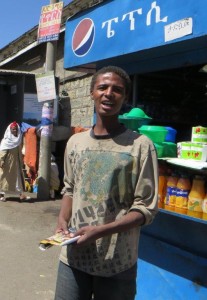Presented by Girum Abebe at EDRI on 3rd April.
The promotion of micro and small enterprises has been a centerpiece of the Ethiopian government’s strategy to alleviate urban unemployment among the youth since 2004. Since this time, the government has created a business environment that is conducive to establishing and growing new MSEs. This research, using a large dataset collected from 13 major cities in Ethiopia, explores whether government-induced enterprises (cooperatives) differ from self-initiated enterprises (non-cooperatives) in various aspects of business productivity, performance and practices.
Cooperatives are run by more educated and younger entrepreneurs, while self-initiated enterprises are older, smaller and informal. This research identifies that cooperative have greater access to a wide-array of support schemes. Consistent with the government strategy, cooperatives also employ more labor intensive technologies.
Using three distinct measures of enterprise productivity, productivity levels are found to be largely comparable by enterprise type, however differ widely by gender and the level of education of the entrepreneur. Similarly, after controlling for initial size, the value added and gross profit are not statistically different between the two groups of enterprises. Furthermore, the growth calculation also indicates that while growth rates of self-initiated enterprises are higher, conditional on positive rates of growth, the likelihood of transition into larger size category appears to be greater among cooperatives.
Abebe presents the suggestion that a more customized government support system that responds to the unique sets of binding constraints faced by such types of dynamic and growth-oriented enterprise, would complement the current all-embracing promotion program of the MSEs.
